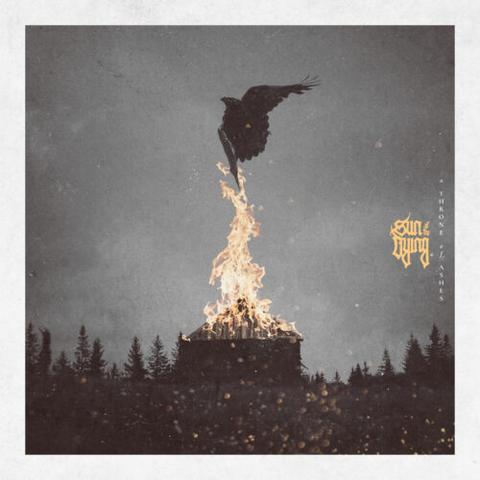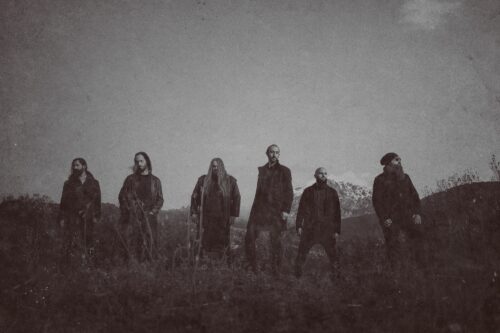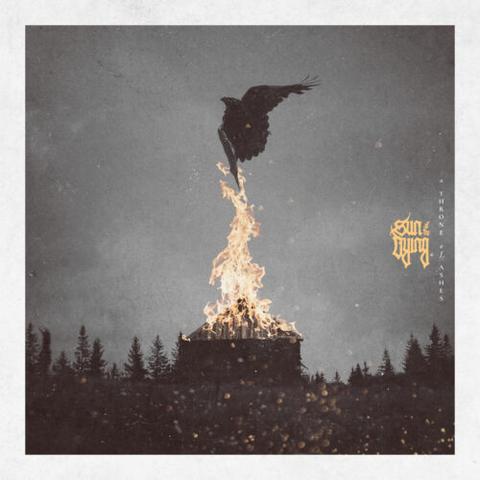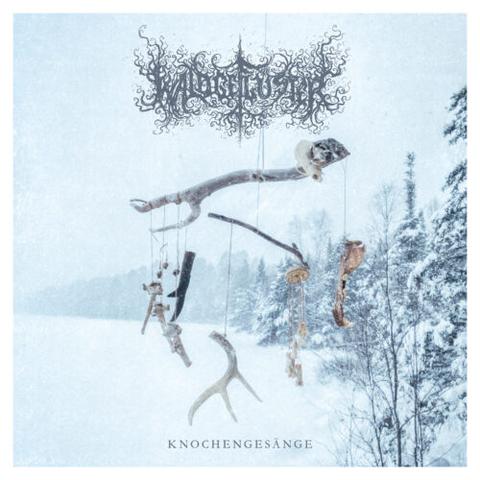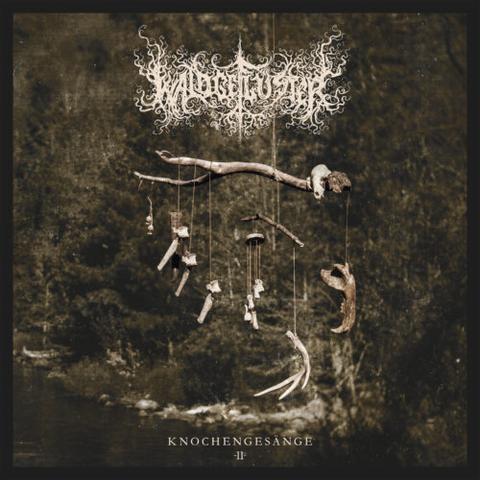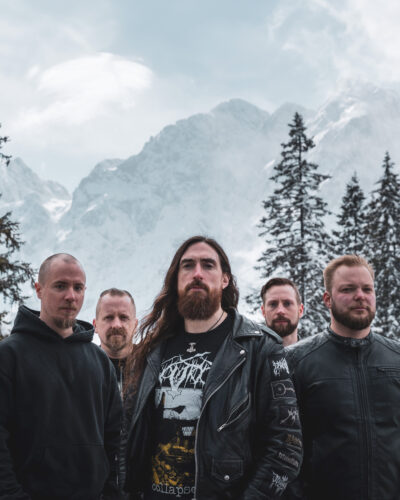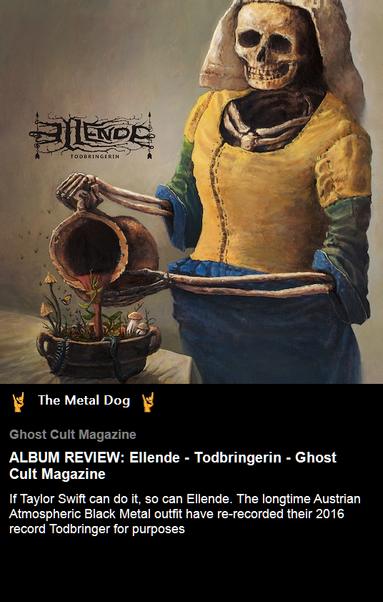Hurtling into the new year with his heart on his sleeve (and bones on his shirt), Ellende’s one-man maestro L.G. bids to set a high bar for 2026. Zerfall, the band’s first new material since 2022,1 continues where Ellenbogengesellschaft left off, further polishing the allure of classically infused black metal. Conjuring comparisons to compatriots Harakiri for the Sky and Weltenbrandt,2 Austria’s Ellende lives somewhere between post and depressive black metal, unapologetically tackling poignant themes with passionate performances and crisp clarity. Translating to ‘decay,’ Zerfall examines the agony of a life fractured by loss and the painstaking endeavor to reclaim inner peace afterwards. Does Ellende’s latest prevail in capturing the haunting sting of tragedy and the catharsis of acceptance, or does it Zerfall short?
The aural evolution from Ellenbogengesellschaft to Zerfall flows like a frosty stream, with stirring strings and restrained piano evoking a sophisticated grace alongside Ellende’s more traditional blackened wrath. In many ways, the mettle that pushed Ellenbogengesellschaft to new heights shines even brighter here, packing more texture and ideas into Zerfall’s composition. In particular, the dedication to vocal variety begets a more nuanced performance and adds enticing wrinkles to an already dense soundscape. Choirs, whispers, and rasps swirl together in an eddy of sonic splendor, and as I revisit past Ellende albums, this dimension more than any other stands as a testament to how L.G. continues to find ways to refine and enrich his project’s musical identity.
Performances across Zerfall dazzle, with the overarching imperative to buoy emotional impact before all else. While there’s little here to sate those who obsess over technical wizardry, I’ve rarely been so in tune with the spirit of music without understanding any of the words.3 Ellende’s central narrative on Zerfall follows a rollercoaster of emotional states, ranging from intense passion (“Wahrheit Teil I,” Wahrheit Teil II”) to sullen contemplation (“Übertritt”) and adventurous perspective-seeking (“Reise”). The music bolsters these themes, as resonant bass plucks support moments of introspection while anger and pain manifest in blackened wails (“Ode ans Licht”). Ellende’s fusion of feeling into melody sparkles with vitality, where even the two bonus tracks preserve (if not outright enhance) Zerfall’s tender luster. Throughout, dreamily sustained chords entwine with buzzing tremolos, drenching the album with atmosphere, while soulful guitar leads emerge with megadoses of seasoning to ensure proceedings are never bland (“Wahrheit Teil I,” “Zerfall”). Instrumentally, Zerfall presents a lush experience that rewards multiple listens to unravel and appreciate its complex flavors.
Besides Ellende’s lyrical and musical cohesion, Zerfall offers an organic production and boasts a track list that wards off weak songs as well as standout moments. The bright production and mix allow the intricate web of instrumentation to breathe, from the sharp percussive click of a pick on acoustic guitar to the slight warble of a bow’s stroke across a violin. No track is dispensable, either—opener “Nur” is closest, yet it effectively establishes Zerfall’s mood at the outset. What’s most telling as I examine my time with Zerfall is the consistency with which I’ve listened to it, both actively and passively. Every track has the same number of plays, and when I reflect on why, it’s clear that while no track should be skipped, no individual moment galvanizes me to spin it again outside of its surrounding context. For an album so steeped in impassioned expressionism, Zerfall never quite attains the zenith of drama needed to fully achieve a euphoric climax of mounting tension and emotion, and this missing ingredient holds it back from greatness.
In his review of Ellenbogengesellschaft, Doomy observed that each release hones Ellende’s songwriting. Zerfall is no exception, taking what worked on prior albums to cultivate a more mature iteration. What began as L.G.’s outlet for introverted misanthropy has developed into a layered project that wields pathos like a knife, cutting to your emotional core with a deft flick of the wrist. Musically, I remember 2025 getting off to a slow start, and Ellende excites me for what 2026 has in store. Even if the coming year doesn’t live up to expectations, Zerfall establishes a surefire safety net of quality and feels.
Rating: Very Good!!
DR: 7 | Format Reviewed: 320 kbps mp3
Label: AOP Records
Websites: Bandcamp | Facebook
Releases Worldwide: January 2nd, 2026



